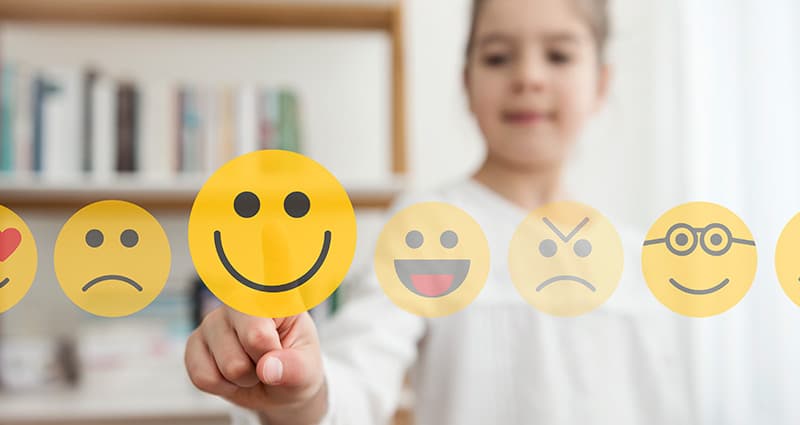Parents play a critical role in supporting their children’s emotional and mental development, including helping them process and cope with big feelings.
This school year marks the third disrupted by the COVID-19 pandemic, and although we’re all finding new normal rhythms, our kids face unique mental health challenges. We’ve gathered some tips to help support kids along the journey.
Be Open and Honest
Talking about big feelings is the first step to being able to manage them. That includes talking about what’s going on with COVID-19 using child-friendly language. Kids pick up a lot from how their parents express and regulate emotions, so take care of your own mental health.
Establishing open lines of communication is key to all relationships. That’s especially true for supporting children’s emotional well-being. Little ones may surprise you with their questions and how they are processing information about social media, bullying, separation anxiety and more. Listening can go a long way to helping them feel supported and knowing they are loved.
Structure and Routine, with Flexibility
Children thrive on regular routines, especially with sleeping, eating and playing. Allow for flexibility to find what works for your family. Getting enough sleep can work wonders for dealing with strong emotions, as can regularly eating nutritious foods.
Stay Active with Fewer Screens
Physical movement is paramount for good mental health, not only for children but also for adults. Regular exercise can decrease negative emotions such as anxiety, anger and depression, and it’s easiest to do when it’s fun and joyful. Make sure your kids get time every day to move around – even better if it can be outside in the fresh air together.
Set limits around screen time knowing that all things have value in moderation. One of our suggestions for healthy family resolutions is to find better screen time balance. Here are some great tips.
Coping Mechanisms
Managing emotions is a skill like any other. Learning and practicing coping mechanisms in advance can help your child deal with them in the moment. Some ideas to share and practice with kids include taking deep breaths, thinking positive thoughts, playing with pets, using stress balls, and journaling, drawing or creating art about their feelings.
Seeking Professional Help
As children develop their emotional regulation skills there will be ups and downs. If behaviors last for a while, interfere with their ability to function, or if you have any concerns about your child’s emotional and mental health, check in with their pediatrician.




